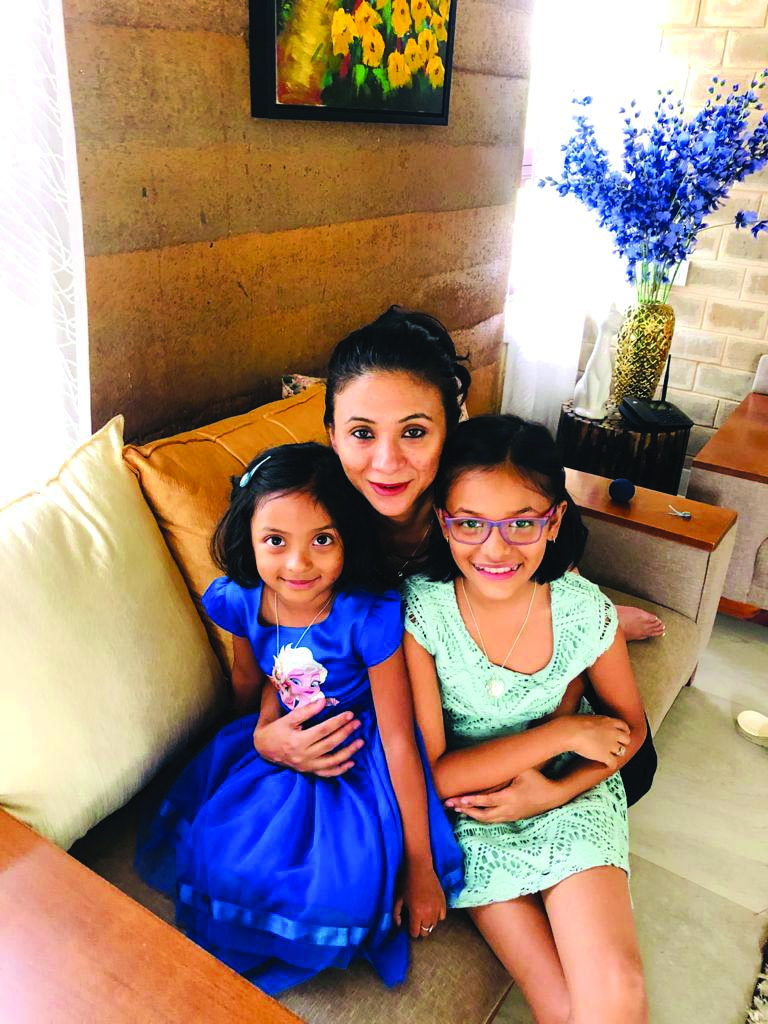Against the backdrop of children trickling back to campuses and classrooms after prolonged socialisation restrictions and isolation, ParentsWorld interviewed several education experts and counsellors to suggest ways and means for parents and teachers to develop students’ life skills even as they focus on remedial academic education in the post-pandemic era, writes Nikhil Jayadevan, Mini P. & Cynthia John
Almost 18 months after the Union government first discerned the destructive potential of the Coronavirus (aka Covid-19) pandemic which originated in Wuhan, China in November 2019 and ordered the shutdown of industry, business, trade and education institutions for varying lengths of time, the country is still counting the cost of this deadly global pandemic which has infected 34 million citizens and killed 450,000 countrywide. The Indian economy suffered a 7.3 percent degrowth in fiscal 2020-21 and unemployment is at all all-time high of 7.2 percent.
Less discernible is that the rampaging pandemic has inflicted heavy damage upon the country’s already floundering education system. According to a recent report of the Parliamentary Standing Committee on Education, Covid has severely disrupted the education of 320 million children and youth. Although a small minority of children enrolled from elite and middle class homes in upscale schools have been able to switch to online learning, the majority of the country’s 260 million school-going children have suffered severe learning loss because they are unable to access Internet connectivity and/or digital devices required for online learing. A June 2021 report of the Azim Premji University, Bengaluru estimates the academic learning loss of primary-secondary children at 80-90 percent.

Yet beyond academic learning loss which has somewhat belatedly attracted the attention of government and educators, the pandemic has also extracted a heavy toll in terms of loss of life and soft skills learning. Prolonged lockdown of schools, prohibition of socialisation, peer interaction and peer learning has severely damaged the communication, listening, empathy, collaboration and conversational skills of millions of children. Co-curricular education and SEL (socio-emotional learning) loss has compounded loss of academic education.
Even before the pandemic disrupted education systems worldwide, the World Health Organisation (WHO) often exhorted policy makers, educators and parents to also focus on developing of children’s life and soft skills to “promote personal and social development, prevent health and social problems, and protect human rights”. In a study paper published in 2019 the organisation recommended development of ten life skills of the children and youth communities — communication, decision-making and problem-solving, creative and critical thinking, self-awareness and empathy, assertiveness, self-control and resilience.
Likewise, the Future of Jobs Report 2016 of the Switzerland-based World Economic Forum, lists Top 10 life skills that are essential for children to succeed in complex, multi-cultural and boundary-less workplaces of the new millennium. Among them: problem-solving, critical thinking, creativity, people management, emotional intelligence, judgement and decision-making, service orientation, negotiation and cognitive flexibility.
Addressing delegates at the annual Davos Summit of World Economic Forum in 2018, Chinese billionaire business magnate, philanthropist and chairman of the online Alibaba Group (annual revenue: $72.3 billion or Rs.5.42 lakh crore), Jack Ma highlighted the importance of developing children’s life and soft skills for success in the new millennium. “Everything we teach should be different from machines. If we do not change the way we teach, 30 years from now we will be in real trouble. We need to teach our children values, believing, independent thinking, teamwork, care for others. These are soft skills that conventional knowledge will not teach you,” he warned.
 This advice is endorsed by Sriram Subramanian, Mumbai-based co-founder and CEO, Clever Harvey, a company that offers an online ‘Junior MBA’ programme for class VIII-XII students to develop entrepreneurial capabilities. “The pandemic has radically transformed the jobs marketplace. Future workplaces will require workers with skills such as adaptability, collaboration, communication, creativity and critical thinking to function effectively within a global economy completely transformed by the pandemic. Parents need to realise soft skills are as important as academics for their children to succeed in post-pandemic workplaces,” says Subramanian.
This advice is endorsed by Sriram Subramanian, Mumbai-based co-founder and CEO, Clever Harvey, a company that offers an online ‘Junior MBA’ programme for class VIII-XII students to develop entrepreneurial capabilities. “The pandemic has radically transformed the jobs marketplace. Future workplaces will require workers with skills such as adaptability, collaboration, communication, creativity and critical thinking to function effectively within a global economy completely transformed by the pandemic. Parents need to realise soft skills are as important as academics for their children to succeed in post-pandemic workplaces,” says Subramanian.
Against the backdrop of children trickling back to campuses and classrooms after prolonged socialisation restrictions and isolation, ParentsWorld interviewed several education experts and counsellors to suggest ways and means for parents and educators to develop students’ life skills even as they focus on remedial academic education in the post-pandemic era.

Family activities build life skills
Veni Sukumar, head of education, Samsidh Group of Schools, Bangalore, believes that parents can role model valuable soft skills for their children while engaging in everyday activities. “To develop children’s soft skills it’s important to promote family activities. While reading, watching movies, working out, cooking together, parents can pass on good manners, cooperation, the listening habit and polite conversational skills to children. In addition, the virtues of perseverance, time management and quick decision-making can be subtly passed to children while the family is engaged in enjoyable activities,” says Sukumar.
Character building initiatives
Child development experts believe that the post-pandemic era is an appropriate time for parents to step up and provide children the socio-emotional support to develop character and ethical values. Aarti C. Rajaratnam, a well-known Salem and Chennai-based educationist and counselor, suggests the following activity to teach children the importance of ethical values.
“Ask your child to stand before a mirror. Use a dab of paint to leave a small mark on her face. Give her a damp cloth dipped in detergent or any cleanser. Ask her to remove the stain she sees on her reflection in the mirror with the cleaning cloth — an impossible task regardless of the quality of the cleanser and amount of time spent scrubbing the mirror image. Only if the original stain on her face is cleaned, will the image in the mirror become clean. This activity is designed to enable children to understand that social reputation is built by cleansing ourselves. A change in a person’s value system will reflect in real life. Subsequently, talk to children about values that were passed on to you by your parents/grandparents, and other role models who displayed exemplary character,” advises Rajaratnam.

Developing goal setting, decision-making and problem-solving skills
Sriram Subramanian (quoted earlier), CEO of Clever Harvey, which also offers programmes to develop students’ thinking, problem solving, time management, and entrepreneurial skills, recommends that parents devolve the task of planning and organising family events to the children.
“Start by setting children easily achievable goals such as assigning them the task of planning the next family holiday, organising a fest/event in your housing community etc. This will prepare them to assume responsibility and make orderly decisions later in life. Subsequently, you can encourage teenage children to start a small business from home. For example, if they like cooking or baking, they could sell home cooked cakes/biscuits in the neighbourhood. If they’re good at design, they could design hand-painted T-shirts. Engaging in real life projects develops children’s decision making, communication, collaboration, entrepreneurship, and risk taking skills,” says Subramanian, who adds that parents could also enrol children in workshops/programmes in entrepreneurship, technology, and marketing to “canalise youthful creative energy productively”.
Social skills development
 “My older daughter is 11-years-old and younger six. The pandemic restrictions have deprived them of personal interaction with friends. Socialisation and development of social and inter-personal skills are an essential part of growing up. With primary schools still closed, the responsibility of developing children’s social skills such as speaking, listening and good manners has devolved on parents,” says Gloria Pradhan, a Bengaluru-based homemaker.
“My older daughter is 11-years-old and younger six. The pandemic restrictions have deprived them of personal interaction with friends. Socialisation and development of social and inter-personal skills are an essential part of growing up. With primary schools still closed, the responsibility of developing children’s social skills such as speaking, listening and good manners has devolved on parents,” says Gloria Pradhan, a Bengaluru-based homemaker.
Juvina Caren Hannah, co-scholastic teacher, National Public School, Chennai, recommends that parents introduce these initiatives to develop children’s social skills:
Small group play. Arrange small size group play dates for your child to interact and play with peers. Learning to settle arguments, collaborate and negotiate game rules, are all essential skills for success in later life.
Meeting extended family. Encourage children to meet members of the wider family — grandparents, aunts, uncles and cousins. Such interactions expose children to the family’s history, culture, idiosyncrasies and develop their socialisation and relationship building skills.
Assertion & aggression. An important aspect of social skills development is to teach children to be assertive in their communication and behaviour. Educate them about the difference between assertiveness and aggression. Use this example to explain.
You are playing football. Your classmate touched the football with his hand during play, even though he is not the goalkeeper. You demand a free kick. He agrees because you were right and assertive in your claim. You take the free-kick. After a while you wrongly complain that he has fouled again. You stake your claim aggressively. He knows you’re lying, but agrees in the interests of peace and harmony.
“To develop into good listeners and communicators, it’s important for children to distinguish between assertiveness and aggression. When a child states her wishes directly and honestly, while taking others’ needs into account, she is being assertive. Aggression is to stand up for yourself in ways that violate the rights of others. Aggressive behaviour is typically antagonistic, blaming, and demanding. It involves threats, name-calling, and can lead to physical fights. Parents need to teach children to be assertive without being aggressive,” says Hannah.

Public speaking
Public speaking is a valuable life skill that helps children to overcome stage fright, think quickly on their feet, to put forward persuasive arguments and express opinions. It develops children’s self-esteem, confidence, and leadership skills. Jayalakshmi Vaidyanathan, a Bengaluru-based Social and Emotional Learning (SEL) trainer and facilitator, recommends that parents use enjoyable family games such as Ukti i.e, expression, to develop children’s public speaking skills.
Ukti exercise
Write down interesting topics on 8-10 paper cards. Place them face down on the floor. Every family member has to pick one card and speak for 30-60 seconds on the topic written on the card. When children are speaking, don’t interrupt or prompt them.
Advise children to follow these rules before start of the game:
• Respect each other’s ideas.
• Keep an open mind, receptive to all viewpoints.
• They should encourage each other by asking inoffensive questions.
Some sample topics
• If you could change one rule in your school/office, what would that be?
• If you were given a year’s holiday, what would you do with the time?
• Given a chance to perform on stage, what will you perform and why?
Critical thinking
Educators are unanimous that developing critical thinking skills — capability to question, interpret, analyse, compare, contrast, and draw inferences, is imperative for success in the academy and workplaces.
Vaidyanathan recommends introducing children to puzzles and games from young age. “Encourage children to play mind games — Tangram, Sudoku, Matchstick puzzles and crosswords — that prompt them to think hard, to ask How, Where, When and What questions, and search for solutions. Mind games prompt children to develop critical thinking, logic and reasoning skills,” says Vaidyanathan.
According to this trainer and counsellor with over 15 years of SEL development experience, it is the duty and responsibility of parents to provide supplementary education at home to children — especially teens. They should be encouraged to engage in structured argument, healthy debates and to devise learning activities such as brainstorming, writing, active listening and purposeful research. “Education is not necessarily confined to school. It needs to happen at home as well,” she advises.
Also Read:Readying children for on-campus school
























